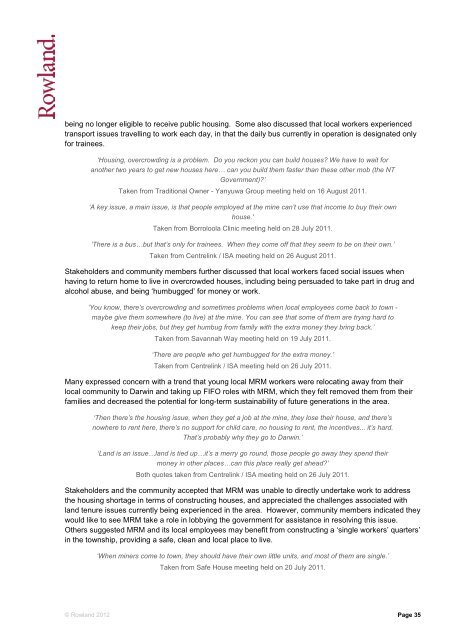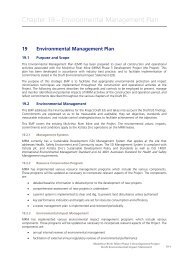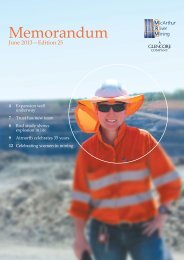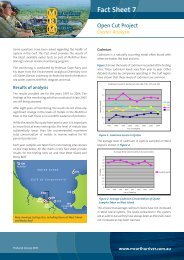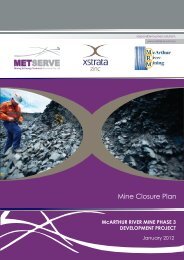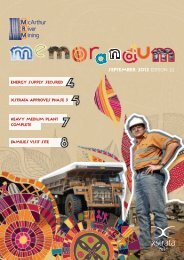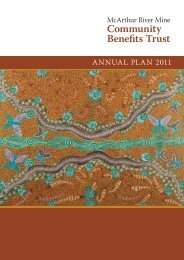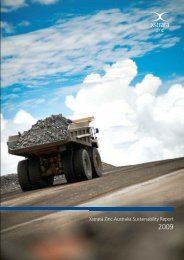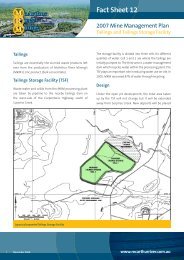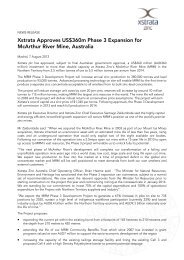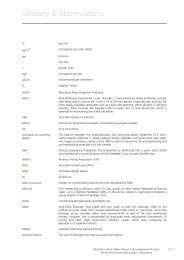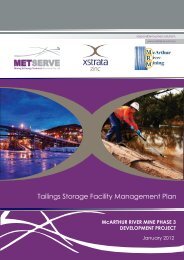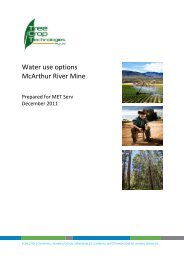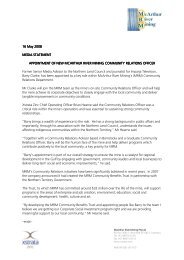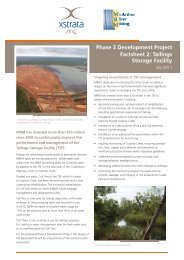Social Impact Assessment - McArthur River Mining
Social Impact Assessment - McArthur River Mining
Social Impact Assessment - McArthur River Mining
Create successful ePaper yourself
Turn your PDF publications into a flip-book with our unique Google optimized e-Paper software.
eing no longer eligible to receive public housing. Some also discussed that local workers experienced<br />
transport issues travelling to work each day, in that the daily bus currently in operation is designated only<br />
for trainees.<br />
‘Housing, overcrowding is a problem. Do you reckon you can build houses? We have to wait for<br />
another two years to get new houses here… can you build them faster than these other mob (the NT<br />
Government)?’<br />
Taken from Traditional Owner - Yanyuwa Group meeting held on 16 August 2011.<br />
‘A key issue, a main issue, is that people employed at the mine can’t use that income to buy their own<br />
house.'<br />
Taken from Borroloola Clinic meeting held on 28 July 2011.<br />
‘There is a bus…but that’s only for trainees. When they come off that they seem to be on their own.’<br />
Taken from Centrelink / ISA meeting held on 26 August 2011.<br />
Stakeholders and community members further discussed that local workers faced social issues when<br />
having to return home to live in overcrowded houses, including being persuaded to take part in drug and<br />
alcohol abuse, and being ‘humbugged’ for money or work.<br />
‘You know, there’s overcrowding and sometimes problems when local employees come back to town -<br />
maybe give them somewhere (to live) at the mine. You can see that some of them are trying hard to<br />
keep their jobs, but they get humbug from family with the extra money they bring back.’<br />
Taken from Savannah Way meeting held on 19 July 2011.<br />
‘There are people who get humbugged for the extra money.’<br />
Taken from Centrelink / ISA meeting held on 26 July 2011.<br />
Many expressed concern with a trend that young local MRM workers were relocating away from their<br />
local community to Darwin and taking up FIFO roles with MRM, which they felt removed them from their<br />
families and decreased the potential for long-term sustainability of future generations in the area.<br />
‘Then there’s the housing issue, when they get a job at the mine, they lose their house, and there’s<br />
nowhere to rent here, there’s no support for child care, no housing to rent, the incentives... it’s hard.<br />
That’s probably why they go to Darwin.’<br />
‘Land is an issue…land is tied up…it’s a merry go round, those people go away they spend their<br />
money in other places…can this place really get ahead?’<br />
Both quotes taken from Centrelink / ISA meeting held on 26 July 2011.<br />
Stakeholders and the community accepted that MRM was unable to directly undertake work to address<br />
the housing shortage in terms of constructing houses, and appreciated the challenges associated with<br />
land tenure issues currently being experienced in the area. However, community members indicated they<br />
would like to see MRM take a role in lobbying the government for assistance in resolving this issue.<br />
Others suggested MRM and its local employees may benefit from constructing a ‘single workers’ quarters’<br />
in the township, providing a safe, clean and local place to live.<br />
‘When miners come to town, they should have their own little units, and most of them are single.’<br />
Taken from Safe House meeting held on 20 July 2011.<br />
© Rowland 2012 Page 35


